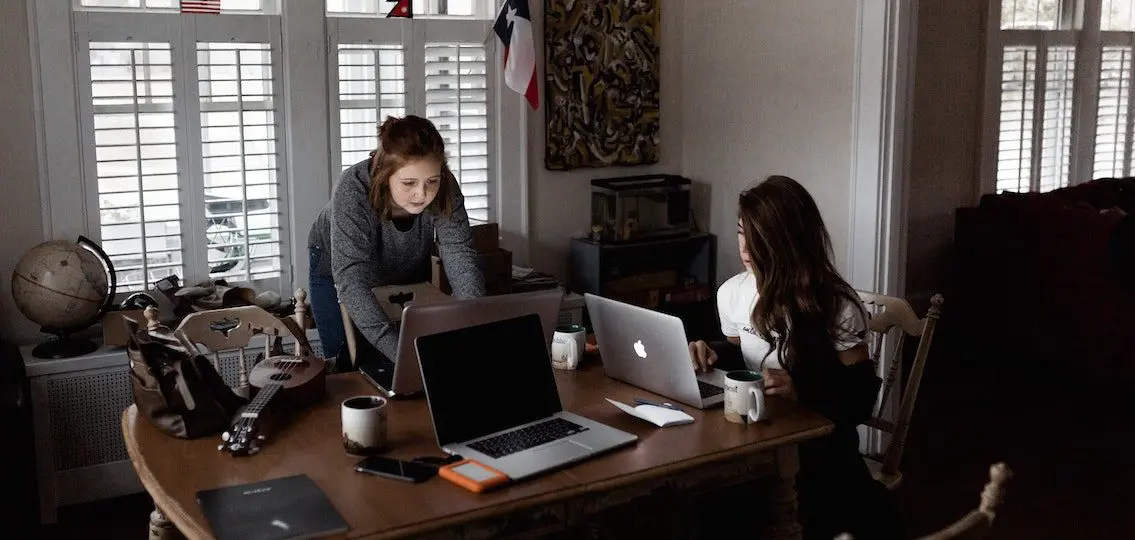After attending an online high school for the past two years, I can finally say to all my traditionally schooled friends: “Welcome to my life!”

I understand the struggles students are going through trying to adapt to video conferencing versus their classrooms and social lunches. It is easy to find yourself staring out the window, mindlessly snacking, flipping to one more Instagram video or reorganizing your desk yet again.
To help other students joining me this semester as they learn online, here are my top tips for getting through this without raiding your kitchen quarantine reserves or throwing your laptop out the window.
How to Succeed at Online School
1. Organize, organize, organize.
I cannot stress enough how important it is to have a plan when learning online on your own. You don’t have a school bell or teachers telling you to go to class, so it can be easy to forget about time. I make a daily plan about what material I have to cover and what subjects I will study that day and I incorporate specific break times. I have my day planned out to the minute, with 50 minutes of class at a time and 5-10 minute breaks in between. I sometimes plan in some “sliding time” so I don’t get behind when I do take a longer break. (Which still happens after two years, so don’t beat yourself up over short time slides.)
2. Minimize distractions and procrastination.
Sitting at home or in bed while notifications ping on your phone and your siblings run by with a pack of chips can distract you from studying. Create a designated study area for yourself in your room or at a desk where you normally study. Put your phone on silent or even turn it off and tell your family not to interrupt you because you are doing your school work.
3. Determine your subject study plan.
Most kids whose schools have transitioned to online learning have specific blocks of time for each subject or class. But it’s up to you to decide on your study plan. Studying six or more subjects daily can be stressful. Coming up with plan of grouping subjects together—format for example, math, history and literature on even days and then biology, geography and chemistry on odd days, can be helpful. This ABAB pattern gives you more time on each subject and also decreases the stress of needing to do so many things in a day.
4. Prepare for your classes in advance and ask teachers for support.
Many schools are holding live classes, but it might not be possible to have your questions answered during class time. Reading ahead or watching videos about the material before your live class will help you better understand the material and save you time. Take advantage of your teacher’s office hours and reach out if you have questions, but be aware there will probably be delays in their response time.
5. Use online resources.
There are hundreds of online resources available for students to use. I try to use books as well as online lectures and videos to understand the material. Currently, many websites are offering free resources to students, so take advantage of all the options available to you because preparing for exams is a lot harder without a teacher by your side. Some of my favorites resources are Khan Academy, Thinkwell, Bozeman Science and educational videos on YouTube.

As a student, I’ve learned that online schooling definitely requires focus and discipline. But with organization and preparation, we can make our lives (and our teachers’ lives) a lot easier, while still getting our education at a distance. Trust me, it’s pretty great being able to go to class in my pajamas. Now if I could only stop snacking so much…





